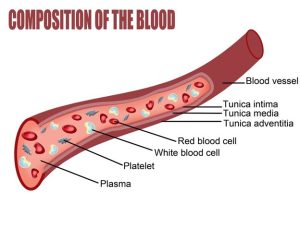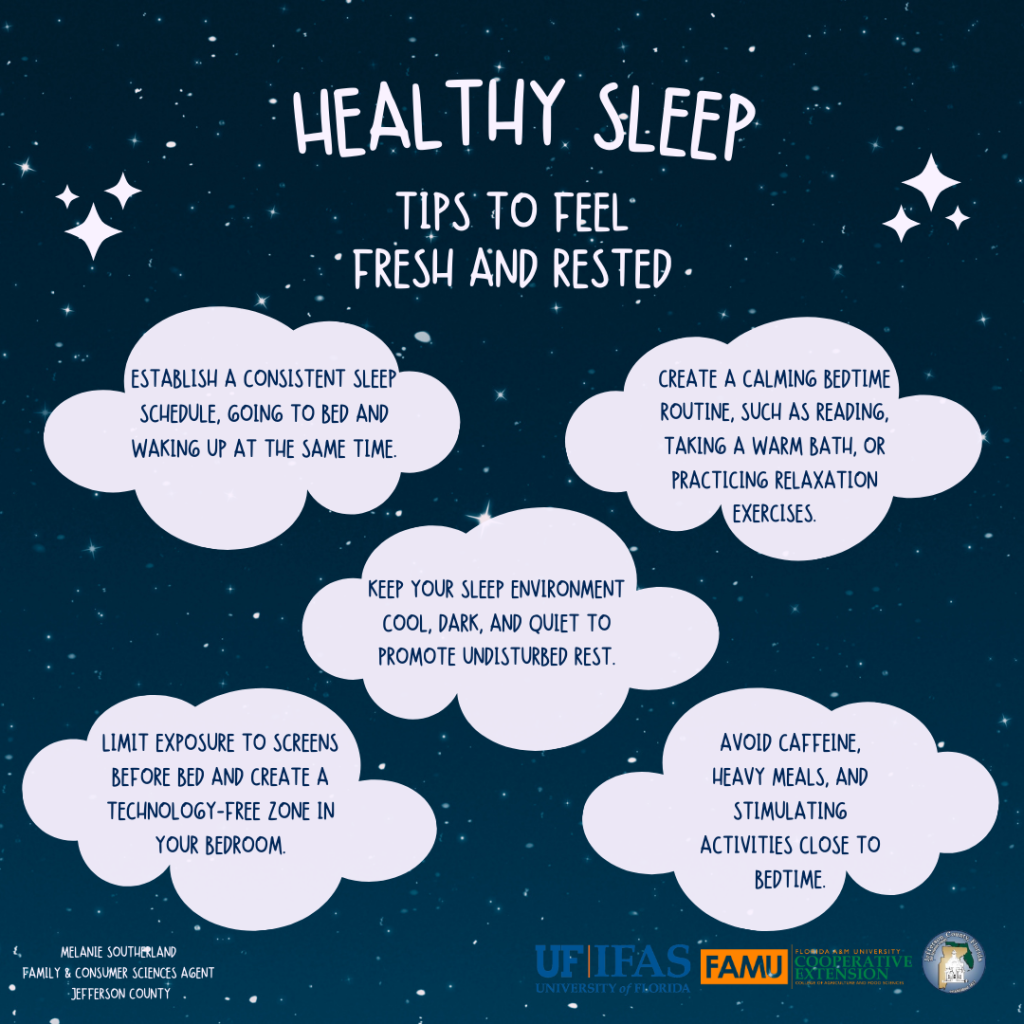by Kendra Hughson | Feb 5, 2025
In recent years, the conversation around mental health has gained significant momentum, particularly in the context of the workplace. As employees increasingly recognize the importance of mental well-being, employers are also beginning to understand that a mentally healthy workforce is not just a moral imperative but a key driver of productivity and overall business success.
The Importance of Mental Health in the Workplace
Mental health issues can significantly impact employee performance, engagement, and retention. According to the World Health Organization (WHO), depression and anxiety disorders cost the global economy approximately $1 trillion each year in lost productivity. The ripple effects can be profound: when employees are struggling with their mental health, it can lead to increased absenteeism, decreased morale, and lower job satisfaction.
Conversely, workplaces that prioritize mental health often see tangible benefits. Organizations that invest in employee well-being report higher productivity levels, reduced healthcare costs, and lower turnover rates. A supportive work environment can enhance employee loyalty, creativity, and teamwork, ultimately contributing to a positive corporate culture.
Creating a Supportive Environment

When employees are struggling with their mental health, it can lead to increased absenteeism, decreased morale, and lower job satisfaction. Photo Credit: Kendra Hughson
- Open Communication: Fostering a culture of open dialogue about mental health is crucial. Employees should feel safe discussing their mental health without fear of stigma or repercussions. Regular check-ins, feedback sessions, and anonymous surveys can help gauge employee sentiment and identify areas for improvement.
- Training and Resources: Providing training for managers on recognizing signs of mental health issues and how to support employees can create a more empathetic workplace. Additionally, offering resources such as Employee Assistance Programs (EAPs), mental health days, and wellness workshops can equip employees with the tools they need to manage stress and maintain their mental well-being.
- Flexible Work Arrangements: The rise of remote work has highlighted the importance of flexibility in maintaining work-life balance. Offering flexible hours or hybrid work options can help employees manage their personal and professional responsibilities more effectively, reducing stress and promoting mental health.
- Promoting Work-Life Balance: Encouraging employees to disconnect after work hours and take regular breaks can prevent burnout. Organizations can set a precedent by respecting personal time and promoting a culture where taking time off for mental health is not only accepted but encouraged.
- Wellness Programs: Implementing wellness initiatives such as mindfulness sessions, fitness classes, or stress management workshops can provide employees with valuable coping strategies. These programs can foster a sense of community and belonging, which is vital for mental health.
The Role of Leadership
Leadership plays a pivotal role in shaping workplace culture. Leaders who prioritize their own mental health and model healthy behaviors can inspire employees to do the same. By being transparent about their struggles and openly discussing mental health, leaders can help break down the stigma that often surrounds these issues.
Moreover, investing in leadership training that focuses on emotional intelligence can enhance leaders’ ability to empathize with their teams, recognize signs of distress, and foster a supportive environment.
Conclusion
As mental health continues to gain recognition as a critical component of overall well-being, organizations must take proactive steps to support their employees. By fostering open communication, providing resources, promoting work-life balance, and investing in leadership development, companies can create a workplace culture that prioritizes mental health. The benefits are clear: a healthier, happier workforce is not only good for employees but also for business success. Embracing mental health as a priority will lead to a more resilient, engaged, and productive workplace for all.
Source: ChatGBT
During the preparation of this work the author used ChatGBT to compile information about mental health in the workplace. After using this tool/service, the author reviewed and edited the content as needed and takes full responsibility for the content of the publication.
by Claire Davis | Jan 10, 2025
 It’s essential to recognize the increased risks of fires, particularly as people are using heating devices and celebrating holidays. This month serves as a crucial reminder for individuals and families to prioritize fire safety in their homes and communities.
It’s essential to recognize the increased risks of fires, particularly as people are using heating devices and celebrating holidays. This month serves as a crucial reminder for individuals and families to prioritize fire safety in their homes and communities.
Understanding the Importance of Fire Safety
According to the National Fire Protection Association (NFPA), a fire department responds to a fire every 24 seconds in the United States. Many of these incidents could be prevented with proper education and proactive measures. Fire Safety Awareness aims to equip people with the knowledge and tools they need to minimize risks and protect lives.
Key Fire Safety Tips for Homeowners
- Check Smoke Alarms: Ensure that smoke alarms are installed in every bedroom, outside each sleeping area, and on every level of the home. Test alarms monthly and replace batteries at least once a year. Remember to replace the entire unit every 10 years. Additionally, consider interconnected alarms that trigger all units in the home when one detects smoke.
-

Changing batteries in a smoke detector. Photo taken 02-23-23.
Create an Escape Plan: Develop a fire escape plan that includes two exits from every room. Identify a safe meeting place outside, away from the fire. Practice the plan regularly with all family members, emphasizing the importance of staying low to the ground to avoid smoke inhalation.
- Stay Informed About Fire Hazards: Familiarize yourself with common fire hazards in your home, such as overloaded electrical outlets, unattended cooking, and flammable materials stored near heat sources. Ensure that all flammable items are stored safely away from heat sources.
- Use Heating Devices Safely: As temperatures drop, many will rely on heating devices. Ensure that space heaters are kept at least three feet away from flammable materials. Never leave heating devices unattended while in use and turn them off when leaving the room or going to bed.
- Educate Children: Teach children about the dangers of fire and the importance of fire safety. Role-play escape routes and practice what to do if they encounter smoke or flames. Also, encourage children to memorize emergency numbers, including 911.
- Install Fire Extinguishers: Keep fire extinguishers in key areas of your home, such as the kitchen, garage, and near any heating devices. Ensure that everyone knows how to use them and that they are inspected regularly. Also ensure that they are still within date and have not expired.
Seasonal Fire Risks

Fire burning underbrush during a controlled burn at Ordway Swisher Biological Station. Photo taken 12-05-23
- Cooking Fires: October is a popular time for family gatherings and holiday cooking. Stay vigilant in the kitchen, and never leave cooking food unattended.
- Heating Equipment: Many fires occur during the colder months due to improper use of heating equipment. Have your furnace inspected annually and clean chimneys regularly.
- Halloween Safety: Be mindful of flammable costumes and decorations. Use battery-operated candles instead of real flames for pumpkins and other decorations.
Community Engagement and Resources

Fire equipment on truck for precsribed burn.
– Local fire departments often host events and workshops during Fire Safety Awareness Month. These initiatives may include:
- Open Houses: Invite families to visit their local fire stations, meet firefighters, and learn about fire safety in a fun and engaging environment.
- Educational Workshops: Attend workshops focused on fire prevention strategies, emergency preparedness, and proper use of fire extinguishers.
- Free Smoke Alarm Installation Programs: Many fire departments offer free smoke alarm installations for families in need. Check with your local fire department for availability.
– National Fire Protection Association (NFPA): Offers a wealth of information on fire safety tips, resources for communities, and educational materials.
– U.S. Fire Administration: Provides statistics, safety tips, and resources tailored for various audiences, including families and businesses.
– Local Fire Departments: Most local fire departments have websites with valuable resources and information about community programs.
Conclusion: A Call to Action
Fire Safety Awareness Month is an opportunity for everyone to take action. By educating ourselves and our communities, we can significantly reduce the risks associated with fires. Encourage your friends and family to participate in fire safety activities and share important safety information. Together, we can create safer homes and communities.
For more information and resources, visit the National Fire Protection Association’s website or contact your local fire department. Let’s make fire safety a priority not just this month, but all year round!
During the preparation of this work the author used ChatGPT in order to create an outline After using this service, the author reviewed and edited the content as needed and takes full responsibility for the content of the publication.

by Suzanne Holloway | Jan 10, 2025
January is recognized as National Blood Donor Month, but what makes blood and blood donation so important?
What is blood?
Blood is an essential bodily fluid that constantly flows through your body keeping it working. It has four main components: red blood cells, white blood cells, plasma, and platelets. Each part is designed to specific tasks.

This Photo by Unknown Author is licensed under CC BY-ND
Plasma
The majority of blood—approximately 55%—is composed of plasma. It is yellowish fluid that is a mixture of water, sugar, fats, proteins, and salts. Its main task is to transport blood cells throughout the body, but is also moves products like nutrients, proteins, hormones, and waste.
Red Blood Cells
The second largest component in blood is red blood cells (RBCs), or erythrocytes, making up about 40 – 45 percent of its total volume. These cells contain a protein called hemoglobin, which helps carry oxygen from the lungs to the rest of the body. Hemoglobin also gives RBCs, and the rest of the blood, their distinct red color.
White Blood Cells
White blood cells, or leukocytes, make up a much smaller portion than red blood cells about 1% of the blood. Their role is to protect the body from infections.
Platelets
Unlike red and white blood cells, platelets are not actually cells, but rather fragments of cells. They are the small component within blood being less than 1% of the total volume of blood. Platelets manage bleeding by assisting in the blood clotting process (coagulation) to seal damaged blood vessels to prevent a large amount of blood loss.
What are the blood types?
Blood also contains antigens, and a protein called the Rh factor, which serve as markers that determine a person’s blood type. Based on antigens alone, there are four main blood types: A, B, AB, and O. However, the Rh factor further classifies blood as either positive (+) or negative (-), resulting in a total of eight common blood types: A positive (A+), A negative (A-), B positive (B+), B negative (B-), AB positive (AB+), AB negative (AB-), O positive (O+), and O negative (O-). The most common blood type, in the United States, is O positive (O+); the least common, in the United States, is AB negative (AB-).
| Blood Type |
Approximate U.S. Population Percentage |
| A positive |
33% |
| A negative |
6% |
| B positive |
9% |
| B negative |
< 2% |
| AB positive |
< 4% |
| AB negative |
< 1% |
| O positive |
38% |
| O negative |
7% |
Understanding blood types enables healthcare providers to safely perform blood transfusions and organ transplants by ensuring compatibility between the donor and the recipient. Additionally, those with AB positive (AB+) blood are known as universal recipients; those with O negative (O-) blood are universal donors.
What’s the importance of blood donors?
According to the American Red Cross, someone in the United States needs blood and/or platelets every two seconds. That is about 29,000 units of red blood cells, 5,000 units of platelets, and 6,500 units of plasma needed daily. Nonetheless, there is no substitute or manufactured version for blood, which means it has to be generously donated by volunteers. It is important for surgeries, cancer treatment, childbirth, chronic illnesses (e.g., sickle cell disease), and traumatic injuries (e.g., car accidents). For more information on the donation process and how to prepare for a donation check out this website from the U.S. Department of Health and Human Services (HHS).
To the almost 7 million people in the United States who donate their time and blood, thank you. Your single donation has saved multiple lives, and your generosity is worth celebrating.
Sources
American Society of Hematology
Cleveland Clinic
American Red Cross

by Melanie Southerland | Jan 10, 2025

Lettuce and kale leaves. UF/IFAS Photo by Tyler Jones
According to the American Heart Association, recommended blood pressure values should be a systolic (upper number) less than 120 mm Hg and a diastolic (lower number) less than 80 mm Hg. High blood pressure, or hypertension, is when blood pressure is consistently higher than normal. Why is this important? Hypertension increases the risk of heart attack and stroke.
Let’s talk about risk factors:
Family History and Age:
If someone in your immediate family has hypertension, you are at a higher risk for the condition. Knowing your family history can help you make lifestyle choices that can be beneficial for your overall health and well-being. As you get older, age increases the risk for the condition. Men are more likely than women to develop the condition before age 64; women have a higher risk after the age of 65.
Unhealthy Eating Pattern:
Eating patterns consisting of foods high in sodium, added sugars, saturated fats, and trans fats can increase the risk of high blood pressure. Unhealthy eating patterns can contribute to overweight and obesity which also is a risk factor for high blood pressure because the extra weight puts strain on the heart and circulatory system. Also, drinking alcohol in excess can cause many health conditions, but it can especially increase the risk of high blood pressure.
Physical Inactivity:
Not getting enough physical activity can increase your risk. Adults should aim for at least 150 minutes of moderate-intensity activity per week. Exercise increases blood flow throughout the body which is beneficial to the heart. Regular physical activity can also help the body maintain a healthy weight.
Other Conditions:
Diabetes, sleep apnea, high cholesterol, smoking, and tobacco use are all other risk factors for getting high blood pressure.

Cooked beets and carrots on a cutting board. UF/IFAS Photo by Tyler Jones
The American Heart Association recommends following a healthy diet pattern. What does a healthy eating pattern look like? Eating a variety of fruits and vegetables, lean protein, low-fat or fat-free dairy, and whole grains. Dark green vegetables such as collards, kale, broccoli as well as sweet potatoes and beets can be beneficial for blood pressure. Fruits such as blueberries, strawberries, kiwi, and bananas are especially good for blood pressure. Choose to eat whole grains rather than refined grains and lean protein foods such as fish and de-skinned chicken. For plant protein sources, choose beans, lentils, and chickpeas. The USDA MyPlate recommends 3 cups of low-fat or fat-free dairy per day. For more information on recommended serving sizes for each food group, visit choosemyplate.gov and check out the 2020-2025 Dietary Guidelines for Americans.
Now that you know about high blood pressure, common risk factors, and how to follow a healthy eating pattern, let’s start reducing our risk for high blood pressure today!
An Equal Opportunity Institution
by Melanie Southerland | Dec 6, 2024
Did you know that 35% of adults in the U.S. do not get the recommended 7 or more hours of sleep each night [1]? Sleep deprivation is on the rise and can negatively affect overall health. The body’s ability to function properly and to feel rested is dependent upon how much sleep a person gets. Research shows that not getting the recommended amount of sleep each night correlates with obesity, along with other chronic conditions such as heart disease, diabetes, and high blood pressure [2].
Why is this important? Obesity is one of the leading causes of chronic disease and mortality in the U.S. People who are obese are more likely to have chronic diseases and die at an earlier age compared to non-obese individuals. Some things cannot be controlled regarding overall health but there are certainly ways to reduce the risk for chronic conditions and obesity. Aim for at least 150 minutes of moderate-intensity activity per week, sleep 7-9 hours each night, and eat various fruits and vegetables, lean protein, whole grains, and low-fat dairy to support health. There are various health benefits to getting enough sleep; for example, getting sick less often, staying at a healthy weight, reducing stress, and improving mood, improving attention and memory, and improving heart health and metabolism.
Sleep quality is important in addition to getting the recommended amount of sleep, you also need to ensure you are getting quality sleep. Quality sleep includes waking up feeling refreshed and rested, falling asleep easily and quickly, and staying asleep. If you wake often, have trouble falling asleep, and wake tired, you likely are not getting quality sleep. Here are some important sleep tips that could help you improve sleep and sleep quality. It is important to wake up and go to bed at the same time each day because that sets an expectation for your body’s internal clock to shut down and wake up. A nightly routine is important because it puts your body into a system that is preparing for sleep and staying consistent can help your body to understand that it is bedtime, and rest is around the corner. Limit screen time before bed because it is stimulating to the brain, which can make it harder to get to sleep, not to mention the added stress it could cause. Consider, reading a book, listening to soft music, and journaling as part of your relaxing nightly routine. Exercise can help reduce stress so, engaging in exercise is important not just for physical health, but for sleep health too.

[1]Center for Disease Control and Prevention. Sleep and Sleep Disorders. Data and statistics: Adults. https://www.cdc.gov/sleep/data-and-statistics/adults.html
[2] Watson NF, Badr MS, Belenky, G, et al. Recommended amount of sleep for a healthy adult: a joint consensus statement of the American Academy of Sleep Medicine and Sleep Research Society. Sleep. 2015; 38(6):843-844. Doi: 10.5665/sleep.4716
American Academy of Sleep Medicine. Sleep Education. Healthy sleep habits. https://sleepeducation.org/healthy-sleep/healthy-sleep-habits/

by Samantha Kennedy | Dec 6, 2024
In the middle of the daily jungle of stressors, there lies a powerful antidote: nature. Research has shown time and again that spending time in green spaces can significantly reduce stress levels and improve overall well-being. And here in Wakulla County, we are blessed with a variety of beautiful places where we can get close to nature.
Here are five ways in which nature works its magic on our minds and bodies:

Spending time with loved ones in nature has been shown to reduce feelings of stress, depression, and anxiety. (Adobe Stock photo)
Step into a forest and be greeted by a symphony of birdsong, rustling leaves, and babbling brooks. These natural sounds have a remarkable ability to soothe frayed nerves and calm anxious minds. Studies have found that exposure to nature sounds can lower levels of cortisol, the stress hormone, and promote relaxation. Additionally, the fragrances emitted by plants and trees, such as pine and lavender, have been shown to have therapeutic effects, reducing stress and anxiety.
The sight of lush greenery and expansive landscapes can have a huge impact on our mental well-being. Whether it is a sprawling meadow, a tranquil lake, or a majestic mountain range, natural scenery provides a visual feast that helps alleviate stress and elevate mood. Even a brief glimpse of nature through a window or a walk in the park during lunch breaks can rejuvenate the mind and enhance cognitive function.
Spending time outdoors exposes us to fresh air and sunlight, both of which are essential for our physical and mental health. Sunlight triggers the production of serotonin, a neurotransmitter that regulates mood and promotes feelings of happiness and relaxation. Additionally, exposure to natural light helps to regulate our circadian rhythms, leading to better sleep quality and overall well-being. Meanwhile, fresh air rich in oxygen boosts brain function and invigorates the body, providing a natural energy boost.
Engaging in physical activities such as hiking, gardening, or even just taking a leisurely stroll in the park allows us to reap the dual benefits of exercise and nature. Exercise is known to be a potent stress reliever, releasing endorphins that act as natural mood lifters. When combined with the calming effects of nature, physical activity becomes even more effective at reducing stress and improving mental health. Furthermore, outdoor exercise encourages mindfulness and promotes a sense of connection with the natural world, fostering feelings of peace and contentment.
Interacting with wildlife, whether it is watching birds soar overhead or spotting deer in the woods, fosters a sense of connection with the natural world. Studies have shown that spending time in nature and observing wildlife can evoke feelings of awe and wonder, which in turn reduces stress and increases feelings of happiness and well-being. Additionally, caring for pets or spending time with animals has been found to have therapeutic effects such as lowering blood pressure and reducing anxiety.
In conclusion, the healing power of nature is undeniable. By immersing ourselves in green spaces and reconnecting with the natural world, we can effectively manage stress, improve mental health, and enhance overall quality of life. So, the next time feelings of stress seem overwhelmed, consider taking a stroll in the park or escaping to the great outdoors.
An Equal Opportunity Institution.













